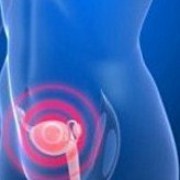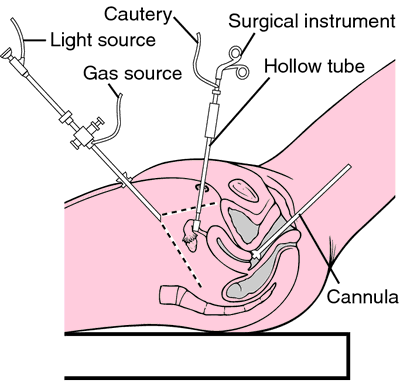 Photo: Getty Images
Photo: Getty Images
Endometriosis is the outcome of endometrium (tissue of the uterine lining) growing in other areas of a woman's body. This can cause irregular bleeding and pain and may cause infertility.
Hormones from the ovaries stimulate endometrium growth every month in preparation for possible pregnancy. If the endometrium goes out of bounds into areas outside of the uterus, this is where the trouble begins. Pain and possible scarring can occur on the fallopian tubes and ovaries, and within the pelvis.
Since progestin is similar to progesterone, it also decreases estrogen production which in turn stops a woman from ovulating and having menstrual periods. Progestins block luteinizing hormone (LH) which helps stop ovulation.
Progestin is an effective hormone therapy, and is one of the oldest treatments for endometriosis. It is usually not tried until birth control pills or gonadotropin-releasing hormone agonist (GnRH-a) therapies have been attempted. These are preferred treatments since high-dose oral or injected progestin like Depo-Provera and Megestrol can have adverse side effects such as thinning of the bones.
High dose progestin can end menses and cause irregular spotting or light vaginal bleeding. It can cause tenderness of the breasts, edema (water retention) and weight gain. Depression and other mood changes can also result.
The progestin intrauterine device (IUD), on the other hand, poses less risk of these side effects because it provides a lower dose of progestin.
The progestin IUD is also not known to have any adverse effect on the bones or cause other negative effects. Progestin from the IUD affects only the uterus and cervix without affecting other areas of the body.
Progestin does not cure endometriosis but then no known treatment can do this. Progestin can improve its symptoms of scarring and pain, relieving levels of pain in 80 to 90 percent of woman suffering from endometriosis. Unfortunately, when the progestin treatment is ended, the pain may recur.
Progestin can be a good choice particularly for women who do not wish to have children. For those women who may want to become pregnant later on in life, it is important to note that it may take some time for menses to return and normalize. After using Depo-Provera fertility may not return for up to 22 months.
Resources:
Progestin for endometriosis
http://www.uofmhealth.org/health-library/hw101487
Long-term management of endometriosis: Medical therapy and treatment of infertility
http://www.srm-ejournal.com/article.asp?AID=8881&UID=
NCBI: Endometriosis
http://www.ncbi.nlm.nih.gov/pubmedhealth/PMH0001913
Progestins for the treatment of endometriosis: an update
http://www.jabb.biz/public/JE/Article/Articleabstract.aspx?UidArticle=8E59A926-F37A-4B46-A6DB-1271720915CA&t=JE
Visit Jody's website and blog at http://www.ncubator.ca and http://ncubator.ca/blogger





Add a CommentComments
There are no comments yet. Be the first one and get the conversation started!